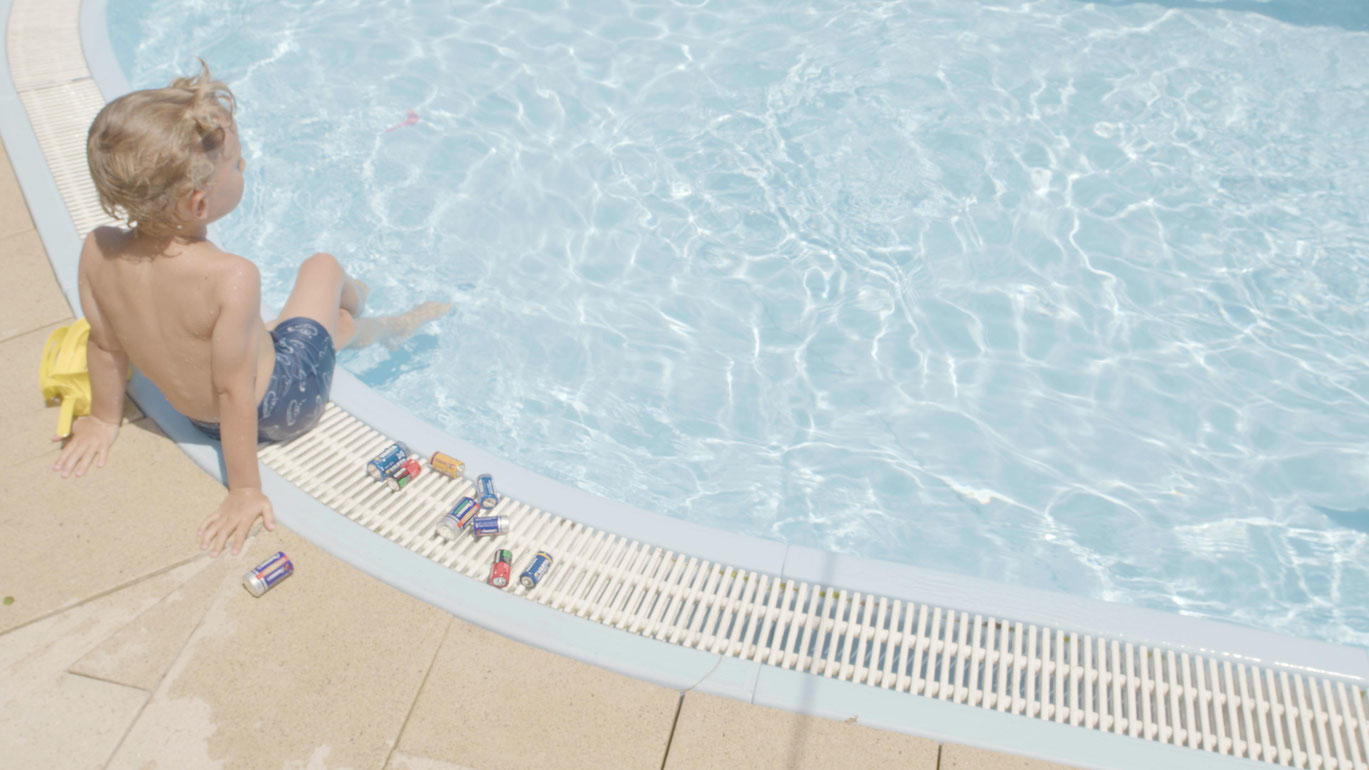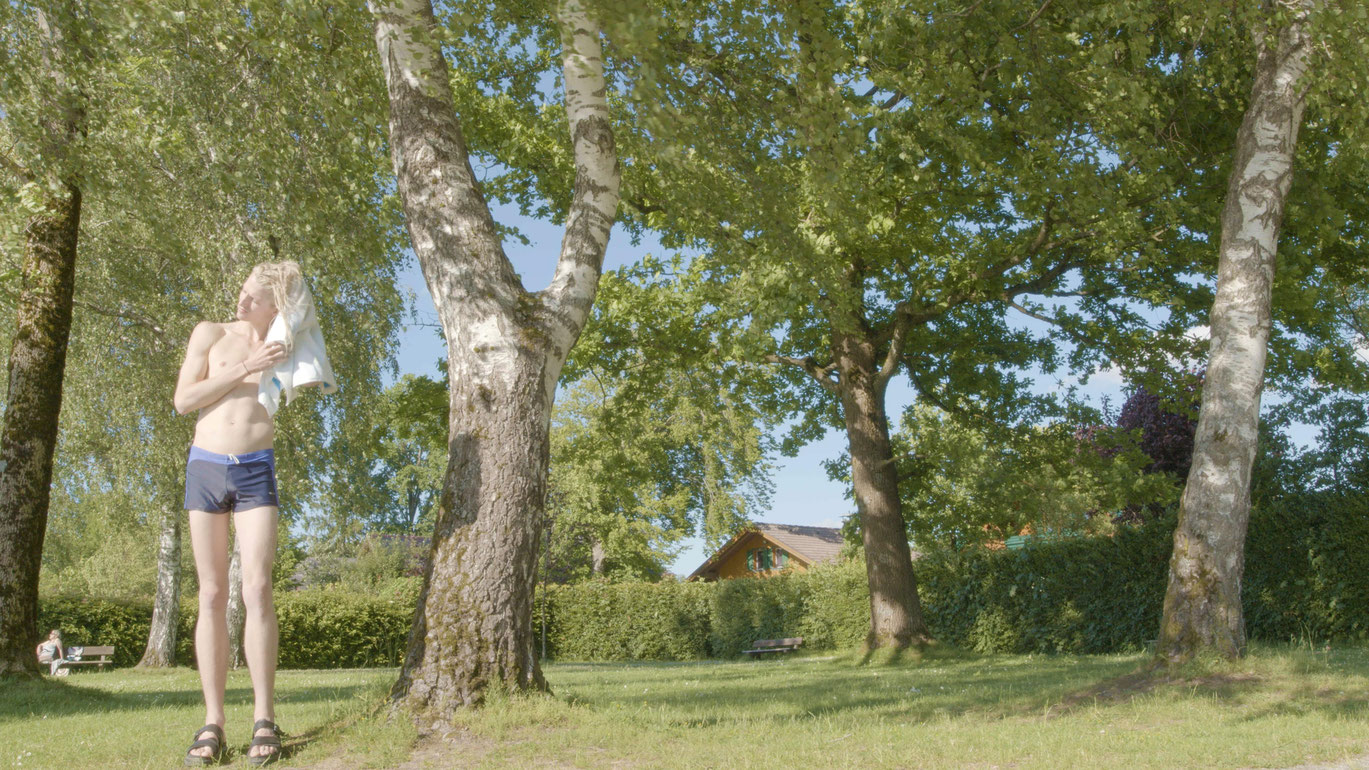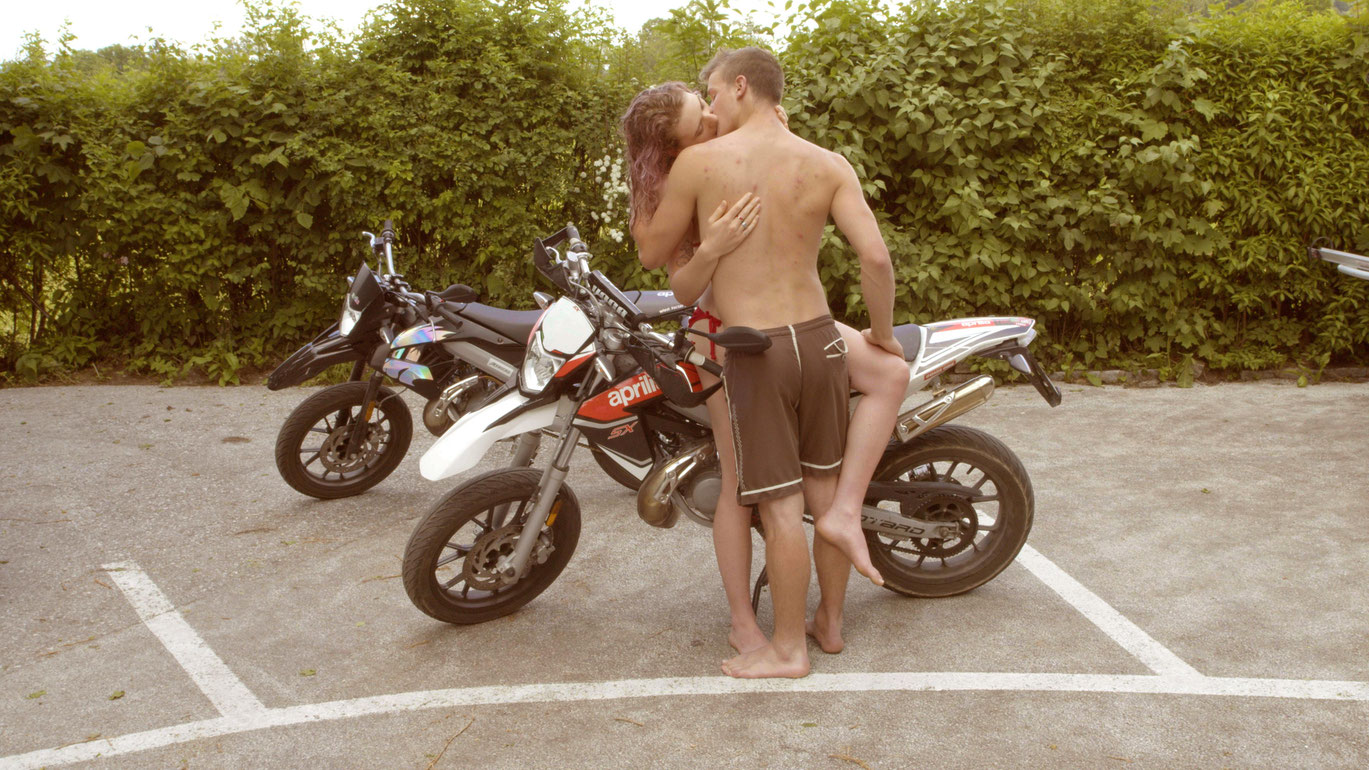Du Hund du
In his roughly twelve-minute debut film, Benjamin Laabmayr shows the village swimming pool as a site of commonplace bizarreness. The vanity plate ASSFCK6, a boy diving for batteries, and children who decide their parents' future using Tarot cards are all examples of the film’s refreshing humor, which is transported via short, in part developing scenes.
It is exceptional how the director plays with positions and perspectives, usually leaving them ambiguous: is it about alienation or observation? Are the people exhibited or depicted? Is it about staging or capturing something documentarily? The guests at the pool play themselves in Du Hund du and in doing so are part of a milieu study, Laabmayr’s concern with the social tensions between rural and urban life also extends to his other works. The film on the one hand documents the ostensibly idyllic and authentic village community in which he grew up in its deadlocked routines, and on the other hand, with more or less subtle interventions, leads it ad absurdum.
The way in which the director captures or stages a same old same old summer day at the outdoor pool presents viewers with overdone clichés, confusion, and magnificent humor. If you are looking for a skewed yet witty social portrait, here it is: Du Hund du. (Felicia Schätzer)
Translation: Lisa Rosenblatt
Seidl meets Tati in this deadpan-comic summery chronicle of human foibles, shot in the very lido at Henndorf am Wallersee (Salzburg) where the writer-director himself grew up. With regular visitors playing themselves, Laabmayr meticulously constructs offbeat vignettes whose observational-documentary air yields a salty streak of fictional humor via subtle exaggeration. Exceptional by any standards, but amazing to find such control and wit from a first-timer. (VIS 2022, Neil Young)
Du Hund du
2022
Austria
11 min 32 sec



